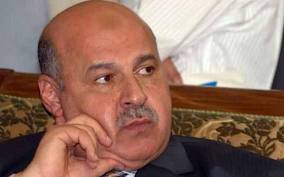
The fifth session of the presidency-sponsored national dialogue started on Wednesday, tackling the possibility of amending controversial articles in the newly adopted constitution and drafting a new parliamentary election law.
State-run newspaper Al-Ahram reported that former Vice-President Mahmoud Mekki is heading the session, even though he submitted his resignation to President Mohamed Morsy on 22 December.
The report added that it is unclear whether Morsy is going to accept Mekki’s resignation or not, asserting what was previously announced was Mekki’s resignation and not Morsy’s decision regarding it. Notably, the newly adopted constitution does not include the position of a vice president.
The dialogue session takes on the main controversial articles in the new constitution due to calls by opposition groups to amend certain articles. Additionally, the session is deliberating drafting a new law for the upcoming parliamentary elections.
The fourth session, also headed by Mekki, tackled post-referendum scenarios. During the sessions, attendees agreed that the fifth session would discuss drafting a new parliamentary election law if the constitution was adopted, while it would discuss drafting a law for electing a Constituent Assembly if the constitution was rejected.
Aboul Ella Mady, president of Al-Wasat Party and national dialogue committee member claimed members of the National Salvation Front (NSF), the leading opposition bloc, would participate in the fifth session.
Spokesperson for NSF Khaled Dawoud denied Mady’s claims, saying that no members of the NSF are participating in the dialogue. Dawoud added that the NSF sent a document to the presidency, which including the constitutional articles they oppose and their vision for the parliamentary election law.
The previous sessions were mainly attended by figures from Al-Wasat Islamist Party, Freedom and Justice Party, in addition to some other Islamist figures such as Salim El-Awwa, former presidential candidate and Morsy’s assistant. The NSF boycotted all previous national dialogue sessions, stating they will not join until a clear, balanced agenda is set.

